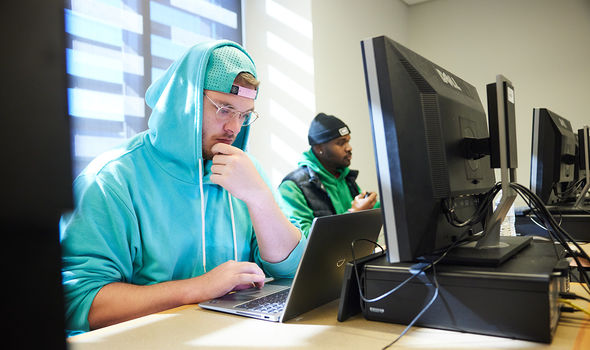Be In-Demand with a Master’s in Cybersecurity and Justice
Dive into the evolving world of cyber-defense with Bridgewater State University's graduate program in cybersecurity and justice.
As cyber threats become increasingly sophisticated, the demand for highly skilled cybersecurity professionals continues to escalate. With a master’s degree from BSU, you will be well-equipped to embark on a rewarding and dynamic career in this vital field.
Housed in the Department of Criminal Justice, our master’s degree in cybersecurity and justice stands out for its meticulous design that meets CAE-CDE designation criteria. This ensures that you receive a robust education encompassing the critical aspects of cybersecurity and digital forensics, setting you apart in the competitive job market.
Our comprehensive curriculum is designed to bridge the gap between technical and non-technical domains, providing you with the practical expertise required to confidently address contemporary cyber threats from multiple perspectives. This program offers a unique opportunity to earn a range of cybersecurity-related certificates, from foundational to advanced levels. Moreover, its flexible structure allows you to tailor your education to align with your specific interests and career aspirations, ensuring that you maximize the value of your learning experience.






